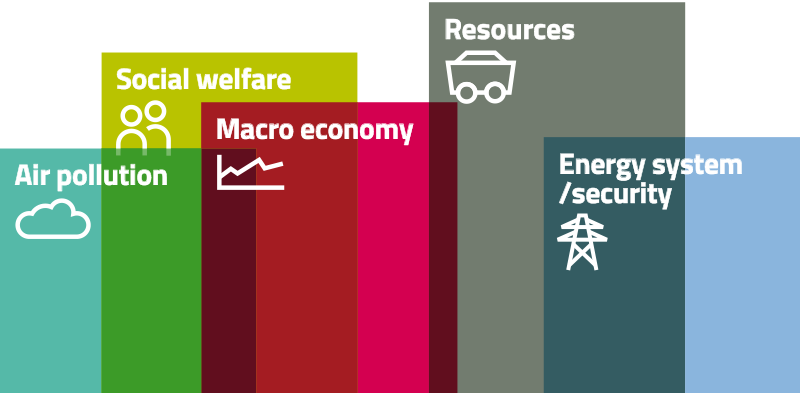COMBI online tool now available
Access documentation of COMBI final conference 17 May 2018
The COMBI project aimed at quantifying the multiple non-energy benefits of energy efficiency in the EU-28 area. It gathered existing approaches and evidence from the EU area and developed modelling approaches for impacts on
- emissions (effects on health, ecosystems, crops)
- resources (biotic/abiotic, metals and non-metals)
- social welfare (disposable income, health)
- macro economy (labour market, public finance, GDP) and
- the energy system (grid, supply-side, energy security).
The consortium was coordinated by Wuppertal Institute with the research partners University of Antwerp, University of Manchester, Copenhagen Economics and ABUD/Advanced Buildings and Urban Design. COMBI was financed by the EU-Horizon 2020 research programme (call EE-12).
All data is available from an open-source online database and analysable via a graphic online-visualisation tool (launched at the final conference 17 May 2018). To this end, an aggregation methodology has been developed to avoid double-counting, deal with other aggregation issues and for presenting the various impacts on their various dimensions. Finally, insights for policy relevance were derived and policy recommendations elaborated to facilitate the communication of the non-energy benefits in the relevant policy areas.
• Input data, scenarios and assumptions
• Details on impact quantifications

